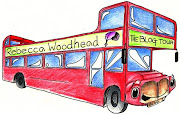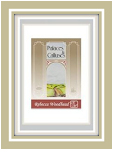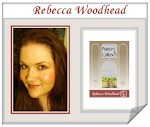For My Fiction Writing Followers: Which Came First - the Plot or the Characters? And Who Really Owns Your Book?
Plot
How do your stories arrive? I read somewhere that Iain Banks fastidiously plans his plots and the characters just have to fit in as best they can.
Initially, I was shocked by this approach. Surely the characters are the most important part of the story. The reader is carried through a work of fiction by a character or characters. They see the world through their eyes. I took a step back. Maybe he has a point. We don't map out our own lives. Events occur and we make the best of them - we try to set sail in a particular direction but the wind can change. If the plot is planned out first then your characters are thrown into the thick of it and their personalities will be shown by their responses to events - just like real life.
Characters
Hmmm. Maybe I'm not sure about the plot-driven approach. Interesting but too convenient. Bit too author-centric. Too much temptation to take control of the book myself and show no respect for my characters.
For me, my characters arrive first. The main character turns up with a small suitcase of ideas and hopes for the plot. I sketch them out tentatively and without too much detail then I put my time and effort into the characters. Where do they want the story to go? How will they screw things up for each other/help each other out? By 'the tricky middle bit' my own ideas for the novel are dispensed with and I ask my characters how to progress. By then they are writing the novel, not me. This isn't as insane as it sounds and it's good practice for the scary thing that will happen once the novels are published.
Your place as Dictator-In-Chief over your fictional world is astonishingly short-lived. If you want to be a good author, you need to care enough about your work to stop thinking of yourself as the author.
Stop Being the Author
Many years ago, I was fortunate enough to sneak myself some lessons with a number of Oxford Dons (English Professors) in the wonderful environs of some of Oxford University's fine colleges. It's a long story but, basically, I had a really bad car accident as a child that left me largely self-educated and when the compensation came through in my teenage years, I spent it on the best education I could afford to fill in the gaps. Nerdy huh?
The book-larning I had cobbled together to that point had convinced me of the vital place of the author in literature. It made sense. Without an author the book would not exist. However, during these rather intense one-to-ones with fabulously brained academics, I discovered that this is not the only view. I was furious to hear that the author doesn't matter much at all. I was only slightly worn in by the idea that art happens in a space between the piece and the viewer. It seemed logical so I let it go.
Finally, I was forced to do battle with an uncomfortable idea: once a piece of literature is 'out there,' it's anybody's. Did I kick against that idea? YES!! I phoned my cleverest friends and put my case for the importance of the author and they were quite sniffy about it. Academic types would have none of it. After much thought I decided that they may be right. Being published is a scary thing. Once the world has seen your work, it is no longer yours.
So Whose Book is it?
Tricky. My best guess is that it is the readers' - or maybe the reader's. It belongs to the readers as a whole but it belongs, more specifically to each individual reader. Why? Well, a good book - depending on whether it's literary or commercial - reflects society or changes it. In fact, I think the terms 'literary' and 'commercial' are troublesome.
The work of Dickens may have inspired changes in the way that certain people in society viewed and treated those afflicted by poverty. Blake may even have inspired certain people to re-evaluate their viewpoint on charity. That said, 'Friends' re-landscaped the urban scenery even in England. Cafes disappeared. Coffee slowly replaced tea as the national beverage. Thousands of people found work in Starbucks and its ilk. Inspired by the idea of 'making your own family' from your friends, people sought to develop new family structures. 'Loft apartments' became trendy; etc, etc. These are big social changes and they happened over a short period of time because a group of writers sat round a table a scribbled some stories about a group of twenty-somethings in New York. Don't even get me started on Sex and the City.
But I Want to Own It!
Copyright and autobiographies aside, if you want to own your work, don't publish it. When you read a book, you do so through your own frame of reference. This character is 'so me' because this thing she did was so much like the thing I did when... etc.
No two people will have the same reading of a novel. The experience of a novel, or any form of fiction, occurs between the words the author types and the world the reader creates. In making the step from amateur writer to professional author, maybe the most important lesson is to understand that in giving your work to the world, you will be losing it. Of course, you can reclaim it at any time. Pick it up and read it. Become the reader and the book will be yours.
Rebecca










.jpg)





This is such an interesting perspective which I've never thought about before. I've always enjoyed writing but can never seem to get past the first few chapters. Maybe what I need to do is let go of the control and hand it over to my characters a lá Rebecca! Thank you for providing such insight into your world.
Great post. As always, I love stopping by to see what you have to say.
Bonnie and Eric. You two are so great. If you were my only followers, I'd still blog just for your comments! Thanks. :)
I would think that a plot first would work better, because the characters fitting into the setting and circumstances would make them seem more real, and it would force you to write them in the context of the plot.
I take the second approach, though, like you those characters usually arrive with a loosely constructed idea of what could happen.
My recent WIP came in a snapshot of a scene I had driving home from work two years ago. That one scene was so defined by character and at least that bit of the plot, it was vivid and sharp and begged to be written down.
I struggle with the bit about who owns the work, I would guess we all do. It's every bit as terrifying as it is exciting, putting our writing out there. What if the new owners hate it and treat it badly? =/
Hi Nate K. Both approaches are valid so do what works for you. In fact I often focus on plot when I write short stories, it's just novels that plot-centric planning doesn't work for (for me anyway.) Don't get me wrong, I still sketch out a plot, it's just that my characters are more important. If you go through my older posts and look at the things I wrote on 'the tricky middle bit' you'll get what I'm on about.
For me, the battle between plot and character kicks off mid-book and it's essentially an ego-thing. I know where I want the book to go but the organic development of the characters frequently calls for something different so I need to surrender my ego - stop thinking of myself as the author - and let my characters lead the way.
I spoke to Jilly Cooper and Ian Rankin about this and both agreed that things can happen mid-novel that cause character and plot developments that you really didn't anticipate when planning your book. Part of the excitement is seeing where these developments take you.
In the editing process I kind of retrospectively write the plot - make sure that there is cause and effect through the novel and there is a good, solid plot in place. A plotless novel is as bad as a characterless one but generally I find the plot's sound anyhow. It just automatically falls into place as I go. I write myself little chapter-heading notes on what might happen in the future, I just don't always stick to them. It's an adventure!
Laura, don't you love those little snapshots? I get those too - they're gold-dust. Your last line is spot on. That has to be the big worry for all creative people.
I interviewed Christina Aguilera's mum once and had this exact conversation with her. We discussed the difficulties of being creative (which calls for so much vulnerability) in the media spotlight (which calls for a really thick hide.) The latter really stunts the former.
To be honest, my biggest worry has not been the thought of failure but the thought of success. Tabloid intrusion is just awful and my heart goes out to famous people. I don't buy the argument that they're 'asking for it' by being successful. What else are they supposed to do, try really hard to be bad at their jobs? On the other hand, holding back from doing what you know you should with your life just because of a few nosy parkers is a bit daft.
I suppose the only thing you can do, if being creative is what you really must be, is acknowledge that some people will hate your work. Once you've acknowledged that, just avoid focusing on it. You have a unique voice and only you can tell stories the way that you do. There is value in that and 'the new owners' when your work is published will be many. It is highly likely that the majority of response will be positive and if there are a few sour comments, it only goes to make the sweet ones sweeter.
Rebecca
Very interesting post you have prepared for us Rebecca. Lets look at this post a little closer. Who owns it? The author owns the story that is crafted between the pages; however, (and this is where the magic happens)the reader owns the story as they interpret it in their imagination. That is the real beauty of writing. A best seller will allow the reader to interpret the story and add detail as they wish but still get to the same ending and understand the plot as the author writes it.
Now, which came first the chicken or the egg? Some of my best story ideas came from the "what if" question. For example: What if the ice caps melted at one time? What would make that happen? How would we survive? With those questions answered I move on to characters. Who would I place in this situation? What point of view should I pick? A country boy or some one from the city?
Action fuels the plot but your characters add depth to that plot. Each character will present different ways to handle the situation presented to them.
What ifs? That's a good tip Brian. That would work really well for short stories and poetry too.
I like the idea that action adds fuel and characters add depth. You're absolutely right. Nothing like a bit of action to move the plot along and give you a different view of your characters.
I've read a great deal recently about authors who start with absolutely no idea of plot. This, and the Iain Banks thing, is what got me thinking about character and plot in particular this week. These authors just write and see what happens. They get published and sell a lot so it must work but I don't know if I would be that brave, would you?
I like trying new things out so maybe I'll give it a bash and see what happens. Anyone else feeling brave? :)
I suppose you really need to try a lot to find out what suits you best.
I've found that I personally feel the need for a 'life lesson' or deeper meaning, something 'philosophical' in my fiction.
Now, if I don't design a nice plot to convey such a message, my narrative tends to get stuffed with abstract theories - not an easy read! - and my characters are suffocated. They can't come to life if I don't get that out of the way beforehand.
If I first draw up a plot, I can focus on the characters and setting when I actually write.
But I can see how it works differently for other people. I suppose it's all about knowing yourself as a person if you want to find out what sort of an author you are.
Deborah
Good points Deborah. Your writing certainly sounds interesting.
I'm very much a plotter when it comes to writing non-fiction articles (except on here where I just babble inanely) but fiction writing feels more free to me. It's a magical journey and I don't set myself hard and fast rules that constrain my writing. I see what works and go that way. The next book I write may call for a totally different approach. It's fun seeing what crops up isn't it? Aren't we lucky to be writers?
:)
Rebecca
The appreciation of art is a subjective process, so I think that the reader very much 'owns' the artefact with regard to its interpretation. This point of view may also mitigate negative criticism, the knowledge that every reader will relate differently depending upon their own journey through life.
Plot versus character. Interesting. For me it's plot first because I feel that the story shouldn't become a mere vehicle for the characters. Having said that, characters can influence the plot, but only so far.